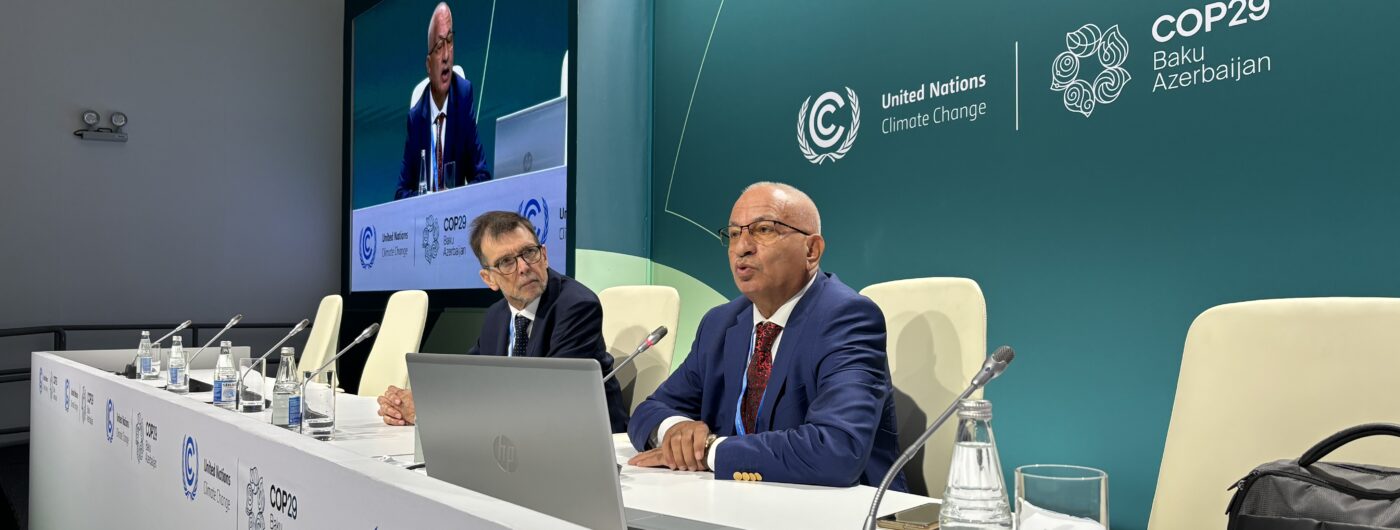
MedECC and UfM: Mediterranean countries’ climate change mitigation and adaptation efforts still insufficient for liveable futures
- Today MedECC, the network of Mediterranean Experts on Climate and Environmental Change, and the Union for the Mediterranean presented the latest scientific findings on the impacts of climate and environmental change on the region’s coastal zones as well as on the Water-Energy-Food-Ecosystems nexus at COP29 in Baku.
- A third of the Mediterranean region’s population lives in close vicinity to the sea, which is among the world’s regions with the highest probability of compound flooding, and is increasingly exposed to hazards resulting from climate change and environmental degradation.
- The effects of this phenomenon will be exacerbated in years to come unless urgent measures are taken now. Meeting the Sustainable Development Goals will require cross-border policies that promote innovative solutions, including renewables, in conjunction with less energy-intensive behavioural changes, such as the widespread readoption of the Mediterranean diet.
18 November 2024, COP29. The impacts of human-caused climate change in the Mediterranean, a global warming hotspot, are becoming increasingly apparent. Just under three weeks after devastating floods swept Spain’s Valencia region, MedECC and the UfM presented the network’s latest scientific findings on the dangerous implications of climate change and environmental degradation for the Mediterranean’s coastal zones and WEFE nexus.
Scientists Piero Lionello, from the University of Salento, and Mohamed Abdel Monem, an independent consultant on climate change and rural development, highlighted the pressing need for more efficient adaptation and mitigation measures in the region alongside UfM Project Manager for Energy and Climate Action Ines Duarte.
“The Mediterranean Sea is a source of immense pride for the 22 countries that border its shores, an inextricable part of their identity and heritage,” said UfM Project Manager for Energy and Climate Action Ines Duarte. “But it is time to accept that the Mediterranean as we know it may not be around much longer if our efforts to counter climate change continue to fall short. Given its consequential importance, supporting the green transition has always been one of the Union for the Mediterranean’s greatest priorities.”
Building on the First Mediterranean Assessment Report (MAR1), the first-ever region-wide scientific report on climate change and environmental degradation, the network’s newest studies sound the alarm once again, drawing attention to current and projected hazards while also presenting actions to minimise their effects.
If current trends continue, up to 20 million people could be affected by permanent displacement due to sea-level rise by 2100. Marine heatwaves, which have grown in frequency and duration by 40% and 15% respectively over the past two decades, coupled with environmental degradation in one of the world’s most heavily plastic polluted areas, have a variety of worrying ecological and socioeconomic effects on the Mediterranean. The region also faces notable water demand peaks in the summer, a trend that is expected to intensify in years to come due to climate change, agricultural practices, and the increase in population and tourism in coastal areas.
A mix of legal, policy and economic instruments are available to promote the sustainable blue economy and decouple energy consumption from economic growth. Because the effects of climate change amplify existing socioeconomic and environmental issues, the most successful pathways for action will involve technological, societal and ecosystem-based solutions that take all four interrelated elements of the WEFE nexus into consideration.
Find the press summary of key findings here.
Learn more: Special Report on Climate and Environmental Coastal Risks in the Mediterranean

